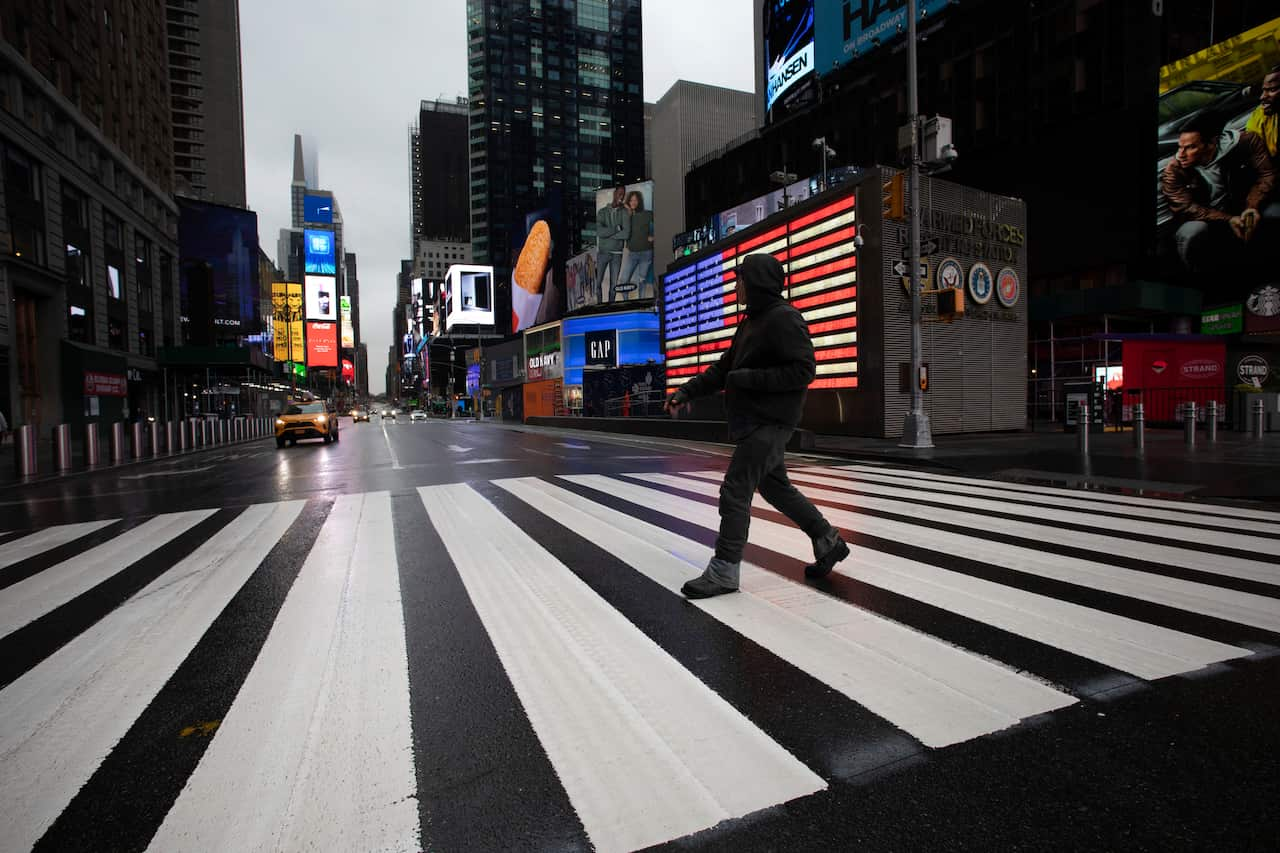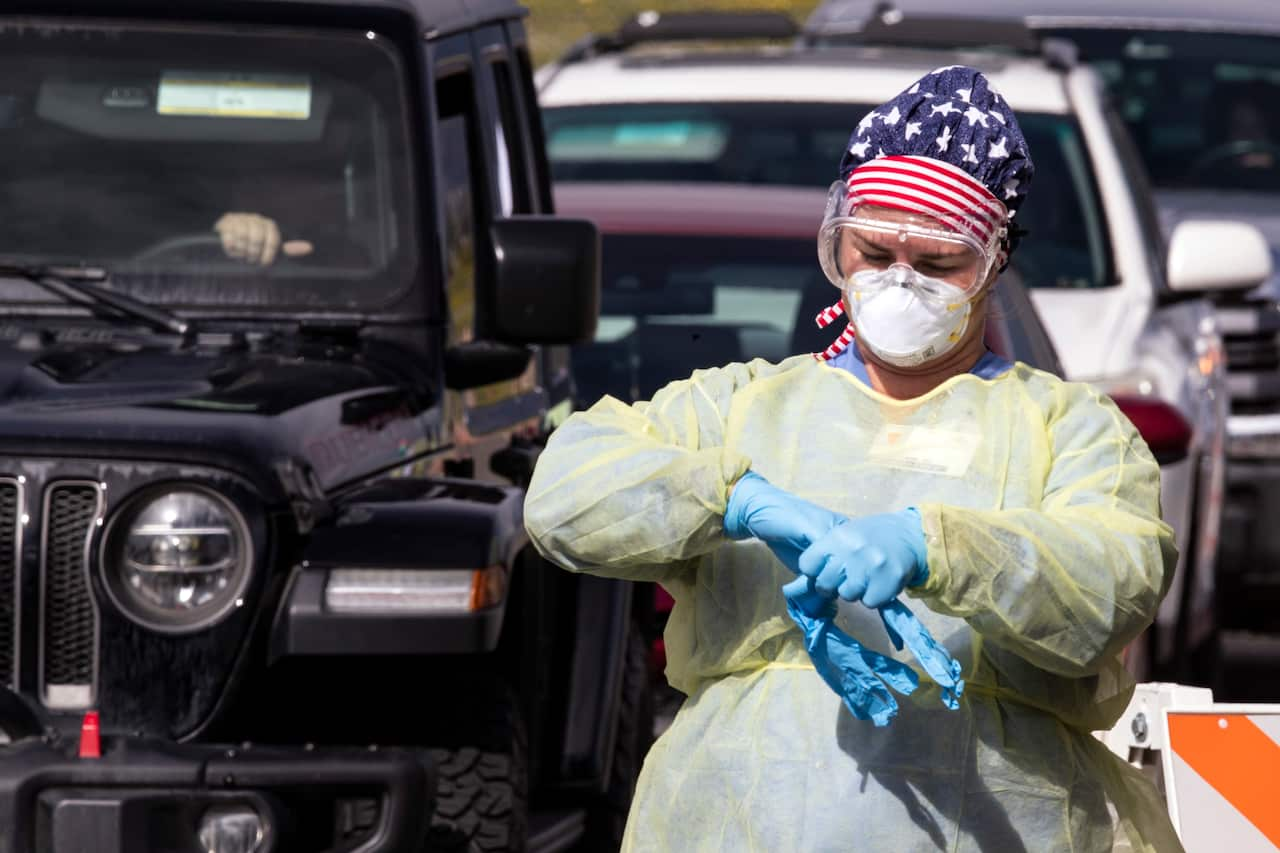New York Governor Andrew Cuomo warned on Tuesday of "troubling and astronomical numbers" in the rate of coronavirus infections in New York, saying they were doubling every three days.
Mr Cuomo said the virus could now peak in one of the country's most populous states in as few as two weeks, with some 40,000 people needing intensive care, numbers that could severely stress under-equipped hospitals that currently have only 3,000 intensive care unit beds.
"We haven't flattened the curve and the curve is actually increasing," he told reporters at Manhattan's Javits Center, where the Army Corps of Engineers is constructing an emergency hospital in the large space that normally hosts conventions.
"We are not slowing it. And it is accelerating on its own," he said.
"One of the forecasters said we were looking at a freight train coming across the country. We're now looking at a bullet train."
Mr Cuomo said New York state had surpassed 25,000 known cases of COVID-19, with 14,900 in densely populated New York City.
At least 150 people have died statewide.
The governor urged the federal government to release some 20,000 ventilators to New York, a need he dubbed "critical."
"Deploy the ventilators around the country as they are needed," Mr Cuomo pleaded.
"New York is the canary in the coal mine."

He also urged Washington to use the federal Defense Production Act, which empowers the national government to order manufacturers to produce necessary equipment.
"We're not going to accept a premise that human life is disposable," he said. "And we're not going to put a dollar figure on human life."
"First order of business is save lives period, whatever it costs."
The governor of New York, which has all but shut down, with only essential businesses like supermarkets and pharmacies allowed to continue operating normally, reiterated that most people who contract coronavirus will self-resolve.
He said research is underway into an antibody test that could detect the virus in people even after the infection has passed, who may now have immunity for a "significant" time period.
Mr Cuomo also said federal authorities had authorized experiments in taking plasma from those who had been infected and transferring it into people still struggling, hoping antibodies can assist recovery.

Six hundred people have died from the coronavirus in the United States, while the number of confirmed cases now stands at over 50,000, according to a tracker maintained by Johns Hopkins University.
The US has the third-highest number of confirmed cases globally, behind China and Italy.
The death rate based on reported cases is now 1.2 per cent, but the actual number believed to be infected is far higher, which would bring the rate down.
Social distancing and quarantine measures have been instituted across much of the United States, bringing the world's biggest economy to an abrupt halt.
President Donald Trump insisted Tuesday that he wants the US lockdown relaxed by mid-April, warning that keeping the measures in place could "destroy" the country.
But many public health experts have warned that lifting the measures too soon could lead to a surge in cases and hospitals being overwhelmed, amid a dire shortage of ventilators and protective gear for health care workers.



